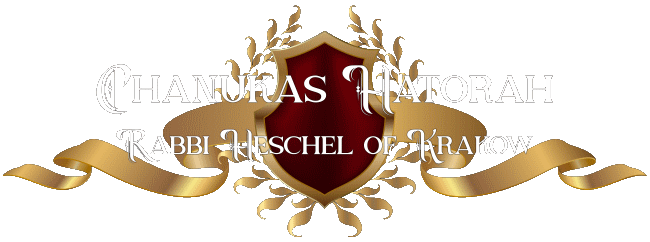

(16:3) With this (בזאת) shall Aharon enter the holy.
This verse alludes to the year ת״ח – 408, which was supposed to be the year of our redemption, the word זאת having the same gematria as ת"ח. (But since we did not merit it, 5408 was instead the year of the terrible Chelminicki massacres).
And even though the redeemer did not come then, we wait for him, because it is our lack of Repentance, Prayer and Charity that is holding back our redemption, and these three things correspond to the words צום – fasting, קול – voice, and ממון – money. And each of three words has the same gematria as קול – voice, alluding to the verse in Tehillim 95:7 “today, if you will hearken to His voice”, which the gemora in Sanhedrin 98a says refers to the coming of Moshiach. And the gematria of all these three words is 408 – ת"ח.
All this is the explanation of our verse “With this (בזאת) shall Aharon enter the holy” – with our redemption which will come about through our Repentance, Prayer, and Charity, Aharon shall enter the holy. And this is also the explanation of the verse in Tehillim 118:23 “From Hashem was this (זאת)”, the time of the redemption, but “it is hidden in our eyes”.
However, the next verse says “This is the day which Hashem has made; we will rejoice and be glad in it”. The explanation of this second verse is according to the gemora in Sanhedrin 98a, which writes that Rabbi Yehoshua ben Levi asked Moshiach when he was coming, and he repiled: Today! Later, Rabbi Yehoshua complained to Eliyohu that Moshiach had lied to him, saying that he would come today but he had not come. Eliyohu replied that this is what Moshiach had told him: “Today (היום), if you will hearken to His voice”.
This is the meaning of the second verse “This is the day (היום) which Hashem has made; we will rejoice and be glad in it” .
(18:18) And a wife to her sister you shall not take (in marriage).
The wording of this verse is problematic, because surely the first woman that a man takes is called his wife and the second one is her sister, and so it should have said “the sister of your wife you shall not take”, or “a sister to a wife you shall not take”!
But we can answer that the Torah is coming to allude to the teaching of the Midrash on parshas Bo, that at the festive meal that will be held in the future Ya’akov will decline to lead the Grace after Meals, because the Torah writes about him “a wife to her sister you shall not take”. But surely the Torah is speaking about every Jew, so how can Ya’akov say that it is written specifically about him?
But the explanation is that Ya’akov worked for Lavan for seven years with the sole intention of marrying Rachel. And so even though it turned out that he married Leah first, nevertheless, Rachel is called his wife and Leah is called the sister of his wife. Therefore, Ya’akov was right in saying that the verse “a wife to her sister you shall not take” was written about him, because he married Rachel his wife after he had already married her sister Leah, and thus the order of the verse reflects his unique situation.